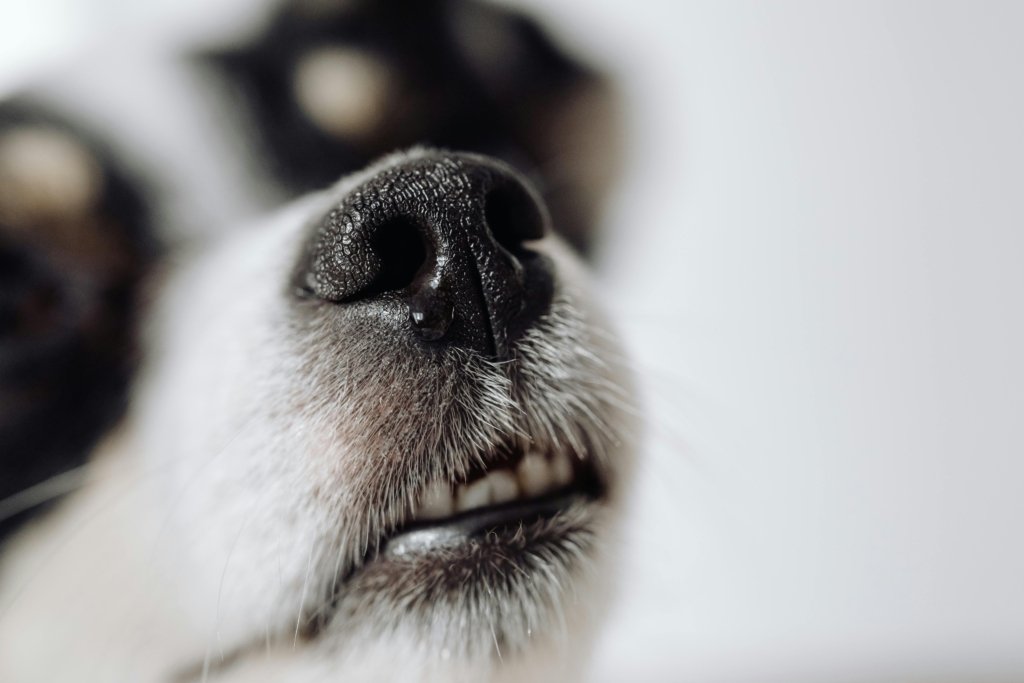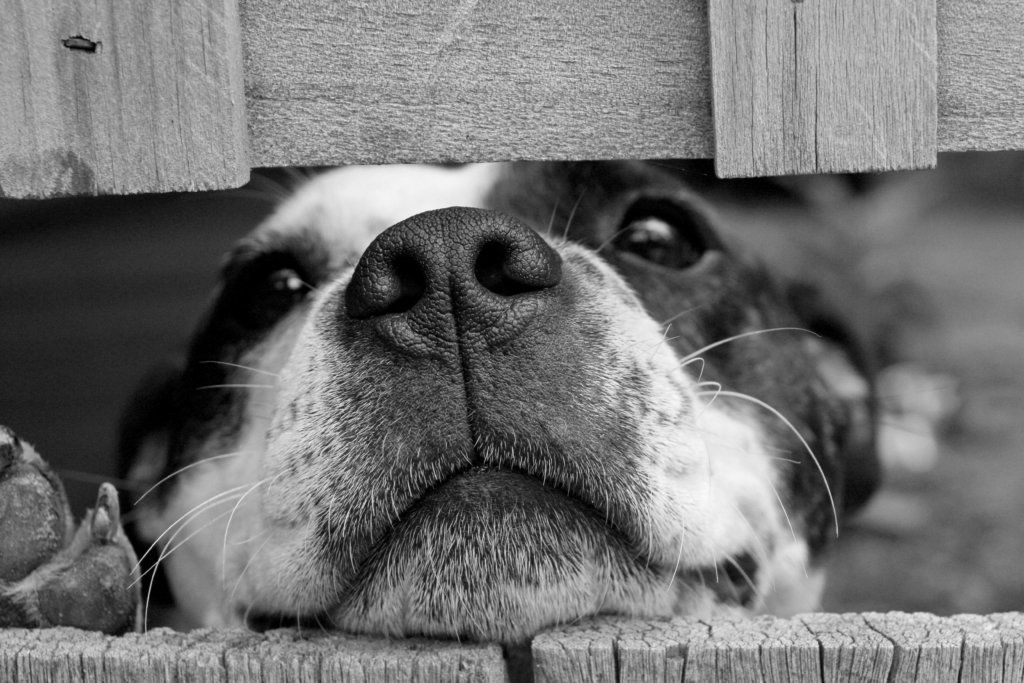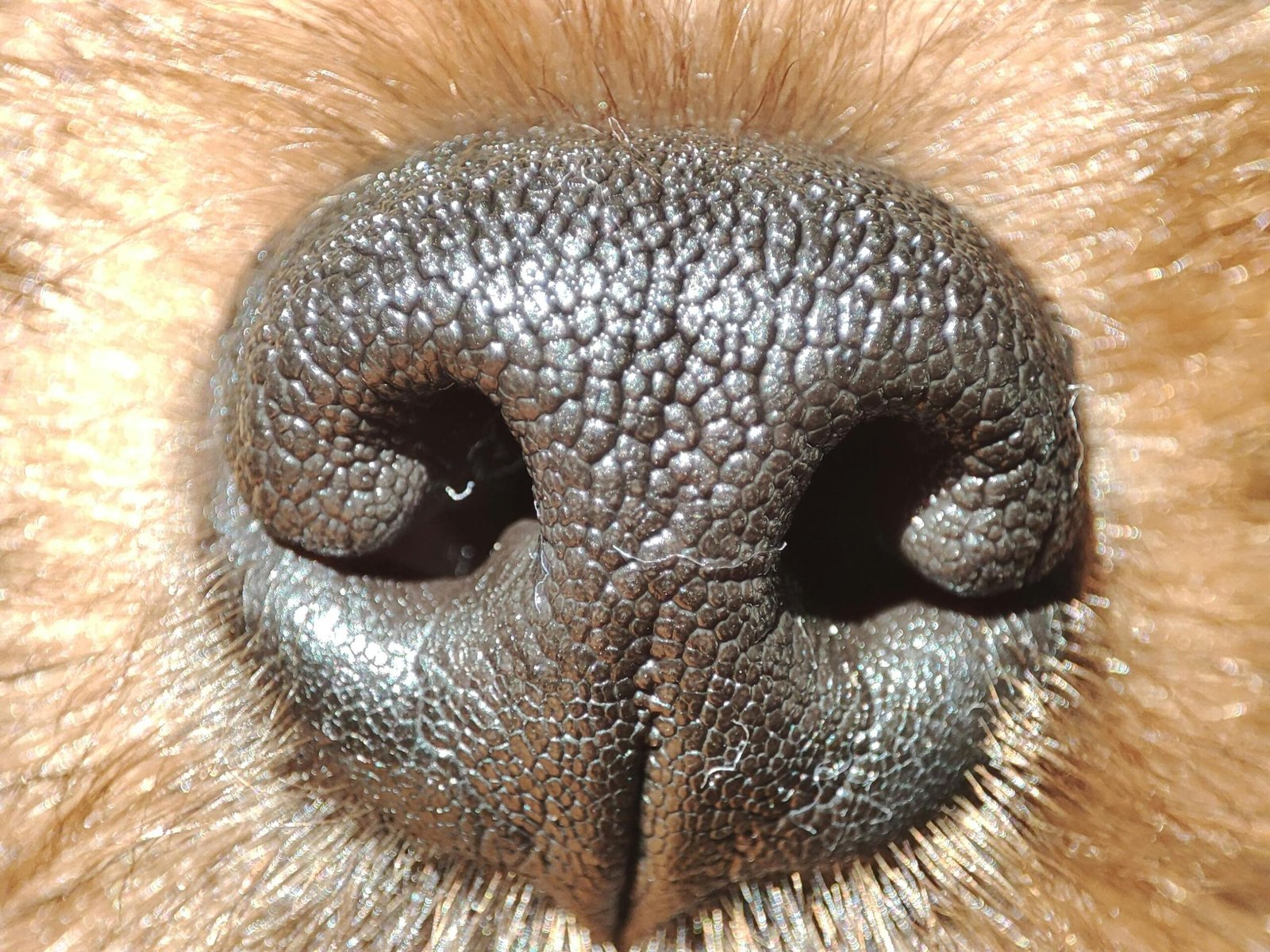Wet or dry nose? Have you ever wondered why your dog’s nose is typically wet? Have you noticed variations in your pet’s moisture level and asked if it’s related to their health or mood? We’ll explore why canine noses are often wet and what it means if they are damp or dry.

Why is a Dog’s Nose Wet?
A dog’s wet nose serves several essential purposes, contributing to their overall health, well-being, and survival instincts. Here are some critical aspeects of a dog’s wet nose:
- Enhanced Sense of Smell: Dogs have an exceptional sense of smell, which is enhanced by their wet nose. Nose moisture helps capture scent particles for precise detection.
- Temperature Regulation: Unlike humans, dogs do not have sweat glands distributed evenly across their bodies. Rather than sweating, their primary methods of regulating body temperature are through panting and using their noses. A dog’s wet nose cools down the air passing over it through heat exchange. This helps regulate the temperature, especially when the weather is hot, or the dog physically exerts itself.
- Hydration Monitoring: A dog’s nose can provide subtle clues about their hydration status. A dog’s nose can be used as an indicator to monitor their hydration and overall health. However, a consistently wet nose doesn’t necessarily indicate optimal hydration, and prolonged dryness can signal dehydration.
- Communication: Dogs use their noses for scent detection and communication with other dogs and humans. Dogs leave scent marks through their wet noses which convey information about their identity, territory, and emotional state.
- Protection: A dog’s nose mucus layer is a barrier against harmful particles and pathogens, preventing them from entering the respiratory system and causing infections.
What Does It Mean if a Dog’s Nose is Dry?
Let’s discuss what a dry nose on a dog might signify.
While a wet nose is often associated with good health in dogs, a dry nose doesn’t necessarily indicate a problem. It’s crucial to understand that variations in the moisture level of a dog’s nose can occur naturally and may not always be cause for concern. However, there are specific scenarios where a consistently dry nose could warrant further attention:
- Dehydration: One of the primary reasons for a persistently dry nose in dogs is dehydration. Dehydration in dogs can cause dry nose due to insufficient water intake or fluid loss from panting, vomiting, or diarrhea. In such cases, it’s essential to encourage your dog to drink more water and monitor their hydration levels closely.
- Environmental Factors: Dry air, indoor heating, and cold weather can cause a dog’s nose to dry out quickly, especially in dry climates.Proper humidity levels indoors and ensuring your dog has access to fresh water can help mitigate this.
- Allergies or Irritants: Dogs can develop allergies to various environmental allergens, including pollen, dust, mold, and certain foods. Allergic reactions may manifest as symptoms such as itching, sneezing, and nasal discharge, which can sometimes cause the nose to become dry or irritated. Consulting with your veterinarian is crucial to accurately diagnose and effectively manage any allergies your dog may be experiencing.
- Medical Conditions: In some cases, a consistently dry nose may indicate an underlying medical condition such as nasal hyperkeratosis, autoimmune disease, or hormonal imbalances. These conditions can affect the production of nasal secretions, leading to dryness, crusting, or changes in the nose’s texture. If other concerning symptoms accompany your dog’s dry nose, it’s crucial to seek veterinary evaluation to rule out any underlying health issues.
Keep an eye on your dog’s health and behavior for signs of discomfort. A dry nose may not always be concerning, but if you’re worried, consult your veterinarian for proper evaluation and guidance. Early detection and intervention can help ensure the best possible outcome for your furry companion.

Monitoring Your Dog’s Nose Health:
Regularly checking your dog’s nose can help detect health issues early, but also observe its behavior, appetite, and energy levels for any signs of concern.
A dog’s nose is a remarkable tool that serves an essential purpose in their sense of smell, communication, and general well-being. While a wet nose is typically a sign of good health, variations in moisture levels are typical and may not always indicate a problem.

